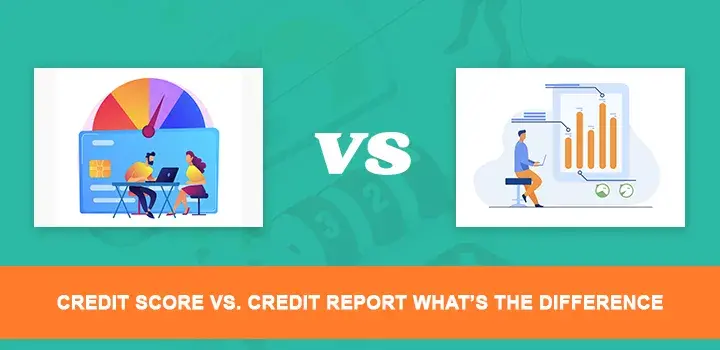
Comparing credit score to credit report confounds matters. A numerical depiction of a borrower's risk to a lender, the credit score serves The information in the credit report—including the person's payment history, the amount owing, length of time with accounts, and categories of accounts—helps one to determine the credit score.
The credit report has comprehensive records of your borrowing and payback behavior. It documents any loans or debts taken out in your name—including mortgages, auto loans, bank loans, or any other kind of debt you have ever carried.
Credit score
When applying for a loan, your credit score is the most crucial factor; lenders consider many ranges of scores. These two largest ones by far are VantageScores and FICO, which come in many forms; both are used in lending choices nowadays!
One difficult chore is keeping up your credit score. Understanding the elements that go into each report and how they affect you as well as what you need to do to keep good grades on these reports moving forward is crucial!
- Your credit history of payments, including whether you have unfavorable marks for late payment or defaulting.
- credit utilization ratio: How much debt you owe relative to your credit limits.
- Recently, how frequently have you made "hard inquiries," or credit applications?
- Your credit age or length of credit history?
- The sort of credit you use—variable payments like a credit card or fixed payments like an auto loan?
Your credit score tells you how much you are qualified to borrow. Those with low balances should keep up on their account activity since good scores are typically around 700 or higher when compared to others who have paid off all debt over time—especially if they are still obtaining new ones at an accelerated rate!
The lender of a credit card or loan will review your score to see if you qualify. Students should keep an eye on their results so they can know what sort of person would be lenders size them before applying with trust in who is lending money from behind closed doors!
Credit report
Though they don't show your score, your credit reports provide a complete account of all the lines you have and their source. Working together, the three main agencies—Equifax, Experian & Transunion—create an accurate document including significant information about how well-managed one's finances currently seem in comparison with others around them who take out loans or mortgages too easily without thinking long-term consequences of their future earning potential due simply because there was no other option available at the time!
Since credit reports show your accounts and how carefully you have paid off outstanding bills, they often span several pages. The report will provide negative information such as bankruptcies or repossessions as well!
A credit report is required for several activities, regardless of your experience level—first-time or otherwise. Among other things, credit records help candidates decide if they qualify for loans and leases, so keeping track of them will also be beneficial!
Reports are prone to faults, as everyone knows, so it's crucial to review them carefully and challenge any errors you come across with the credit score issuing firm. until AnnualCreditReport.com, everyone is entitled to free weekly access until January 2022!
Credit Score vs Credit Report: Key Differences
Lenders evaluate your credit score to decide whether or not you qualify for consumer debt like mortgages, auto loans, and other types of borrowing. When they view your report with this knowledge in mind, what is shown there will influence the interest rates on items like personal checks!
Although your credit score is significant, knowing where to obtain your records makes it much more influential. Get any issues with any of the three main national databases— Experian®, Equifax®, or TransUnion®— corrected first, then focus on improving other areas including outstanding balances and debt owed solely to rapidly raise your FICO rating.
How does Credit Repair Ease help in Credit Score vs Credit Report?
A credit score is a number representing a person's unique creditworthiness. It is computed by considering the individual's credit usage, payment record, length of credit history, new credit, and varieties of credit applied.
Conversely, the Credit Report provides a thorough record of a person's previous or current indebtedness.
Following these guidelines enables Credit Fix Ease to help you fix your Credit Score and Credit Report.
- They will assist you in obtaining your report from TransUnion, Experian, and Equifax three separate agencies.
- They will assist you in contesting mistakes on your credit report.
- They will provide you with a free consultation wherein one of their professionals may help you traverse the procedure.
- They will assist in your negotiations for your remaining payments with creditors.
Call on (888) 803-7889 & Know your credit score now!